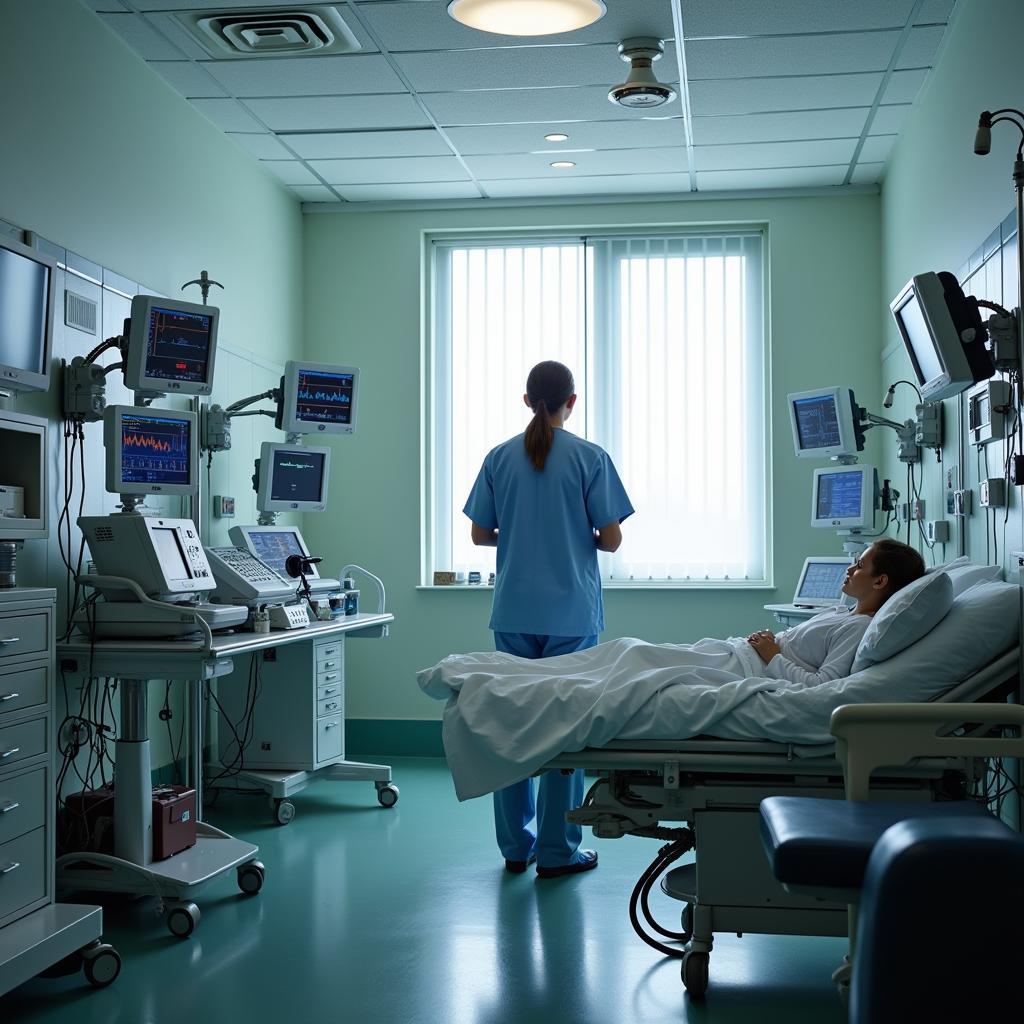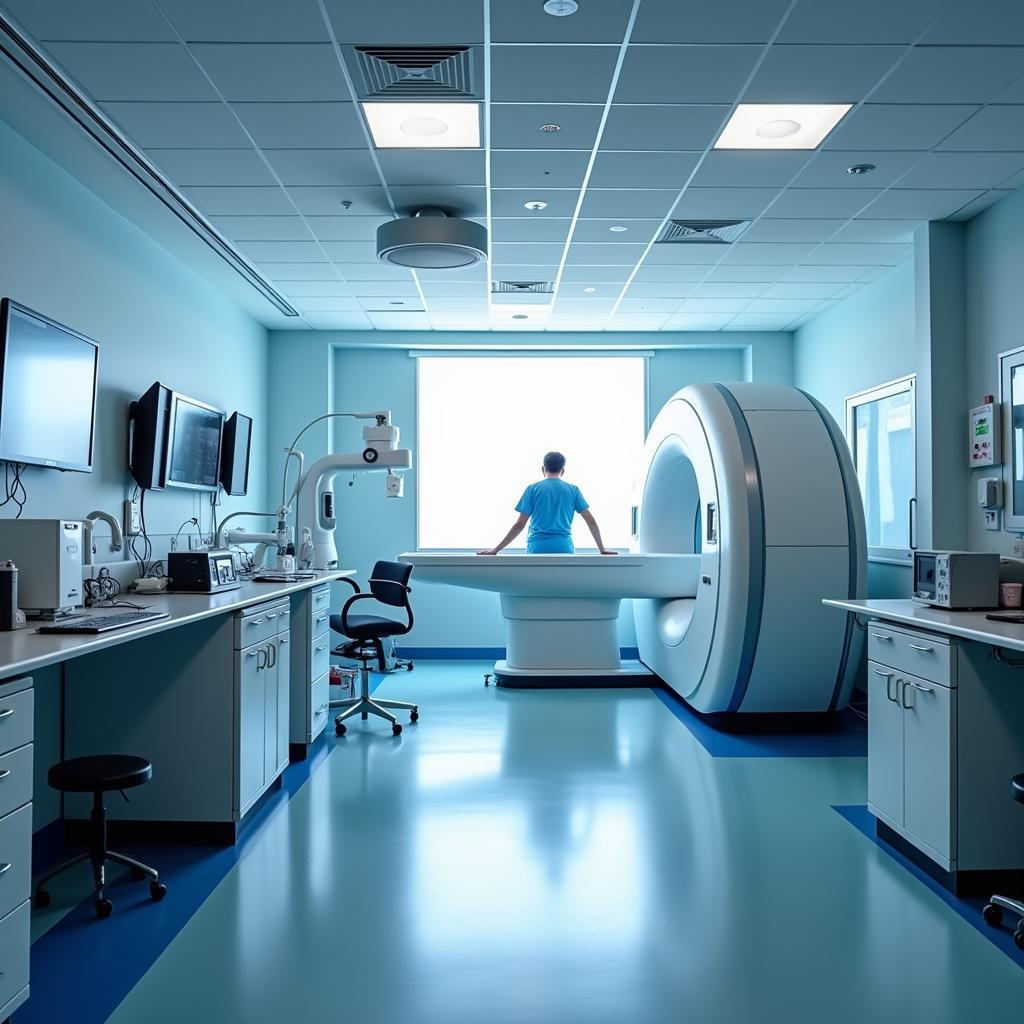Understanding the Different Hospital Departments is crucial for both patients and their families. Knowing where to go and what services each department offers can streamline your experience and ensure you receive the appropriate care efficiently. This guide will explore the various departments found in a typical hospital, explaining their functions and importance.
Emergency Department: The First Line of Defense
The Emergency Department (ED), often referred to as the Emergency Room or A&E (Accident and Emergency), is the entry point for patients requiring immediate medical attention. From severe injuries to sudden illnesses, the ED is equipped to handle a wide range of critical situations. Staffed with specialized physicians, nurses, and technicians, the ED operates 24/7, providing rapid assessment, stabilization, and treatment.
Intensive Care Unit (ICU): Critical Care Around the Clock
The Intensive Care Unit (ICU) provides specialized care for patients with life-threatening conditions requiring constant monitoring and support. These patients may be recovering from major surgery, experiencing severe trauma, or battling critical illnesses. The ICU is equipped with advanced medical technology and staffed by highly trained medical professionals, including intensivists, critical care nurses, and respiratory therapists.
 Inside the Intensive Care Unit (ICU)
Inside the Intensive Care Unit (ICU)
Surgical Services: From Routine to Complex Procedures
The surgical services department encompasses a range of surgical specialties, from routine procedures like appendectomies to complex operations like heart surgery. This department includes operating rooms, pre-operative and post-operative areas, and specialized surgical teams comprising surgeons, anesthesiologists, and surgical nurses. Precision, expertise, and advanced technology are the hallmarks of this crucial hospital department.
Radiology: Unveiling the Inner Workings
Radiology plays a vital role in diagnosing and treating a wide range of medical conditions. Utilizing imaging techniques like X-rays, CT scans, MRI scans, and ultrasound, radiologists can visualize the internal structures of the body, identifying abnormalities and guiding treatment plans. The department also performs interventional radiology procedures, using imaging guidance to perform minimally invasive treatments.
 Modern Radiology Department with Imaging Equipment
Modern Radiology Department with Imaging Equipment
Remember, if you’re unsure which department you need, don’t hesitate to contact the hospital’s information desk for guidance. For information about children’s hospitals, you might find this resource helpful: palm beach children's hospital.
Laboratory Services: Analyzing for Answers
The laboratory services department plays a critical role in diagnosing and managing diseases by analyzing blood, tissue, and other bodily fluids. From routine blood tests to complex genetic testing, the laboratory provides crucial information that helps physicians make informed decisions about patient care. Accurate and timely results are paramount to the effective functioning of this department. You may find helpful information about the complexities of physician billing vs hospital billing.
What are some other key hospital departments?
Beyond the core departments mentioned above, hospitals also house numerous other specialized units. These can include:
- Cardiology: Focused on heart health.
- Oncology: Dedicated to cancer care.
- Neurology: Dealing with nervous system disorders.
- Orthopedics: Specializing in bone and joint conditions.
- Maternity: Providing care for expectant mothers and newborns.
Exploring opportunities in the healthcare sector? Consider checking out information on university hospitals internships. Alternatively, you could look into hospitals peachtree city ga or effingham hospital jobs.
Navigating Different Hospital Departments: Conclusion
Understanding the different hospital departments can significantly enhance your healthcare experience. By familiarizing yourself with the various services offered and the role each department plays, you can navigate the hospital system more effectively, ensuring you receive the appropriate care when and where you need it. Remember, clear communication with hospital staff is key to a positive experience.
 Hospital Staff Communicating with a Patient
Hospital Staff Communicating with a Patient
FAQ
-
What is the difference between the ER and Urgent Care? The ER handles life-threatening emergencies, while Urgent Care deals with non-life-threatening conditions that require prompt attention.
-
How do I find a specific department in a large hospital? Most hospitals have information desks or signage to guide you.
-
Can I visit a patient in the ICU? Visiting hours vary by hospital and unit, so check with the specific department.
-
Do I need a referral to visit a specialist in a hospital? This depends on your insurance plan and the hospital’s policies.
-
How can I prepare for a hospital stay? Pack essentials, bring a list of medications, and inform your physician of any allergies or medical conditions.
-
What should I do if I have a complaint about my hospital experience? Contact the hospital’s patient relations department.
-
How do I access my medical records from a hospital stay? Contact the hospital’s medical records department.
Need support? Contact us 24/7: Phone: 02437655121, Email: [email protected] or visit us at 298 Cau Dien Street, Minh Khai, Bac Tu Liem, Hanoi, Vietnam.